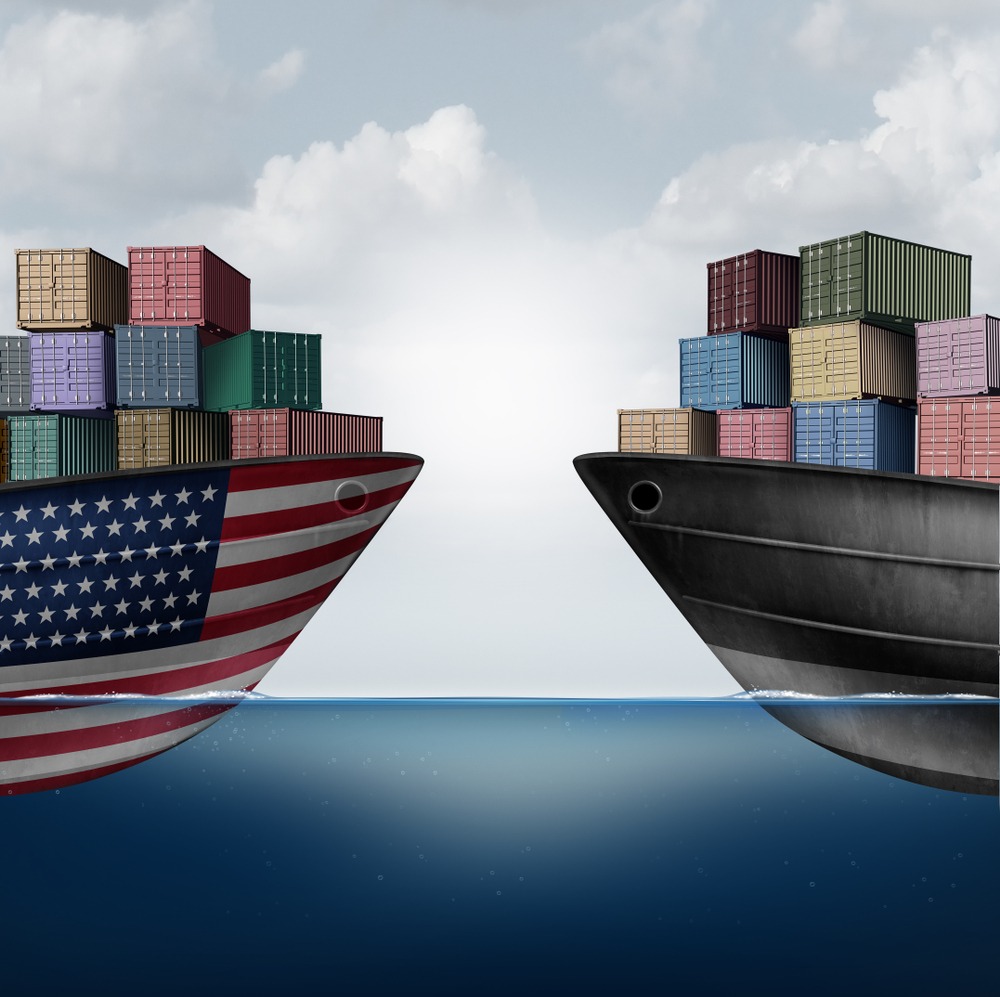US Court Blocks Trump’s Tariffs in Landmark Ruling: A Turning Point in Trade and Accountability.
In a major blow to Donald Trump’s aggressive economic agenda, the US Court of International Trade has struck down the former president’s sweeping tariffs, ruling that he overstepped his constitutional authority. The decision marks a significant victory for small businesses, states, and constitutional checks and balances — and could be a turning point in the ongoing fight to curb executive overreach.
The court concluded that the International Emergency Economic Powers Act (IEEPA), the 1977 law Trump used to justify the tariffs, does not allow a president to impose broad import duties unilaterally. It reaffirmed that the power to regulate international commerce lies solely with Congress — a crucial rebuke to Trump’s expansive interpretation of presidential authority.
“The law is clear: no president has the power to single-handedly raise taxes whenever they like,” said New York Attorney General Letitia James, whose state was one of 12 that challenged the tariffs.
“These tariffs are a massive tax hike on working families and American businesses that would have led to more inflation, economic damage to businesses of all sizes, and job losses across the country if allowed to continue.”
The ruling stems from two consolidated lawsuits. One was brought by the nonpartisan Liberty Justice Center on behalf of small businesses that import goods from countries hit with tariffs. The second came from a coalition of US state governments. Together, they challenged the legality of Trump’s so-called “Liberation Day” tariffs — a global regime of import taxes Trump unveiled in April, aimed at over 100 countries.
The Manhattan-based three-judge panel was unambiguous: Trump’s emergency powers did not override the Constitution’s Commerce Clause. That clause gives Congress exclusive power over trade — a principle the court said still holds, even amid a claimed “national economic emergency.”

Reaction and Market Response
The ruling has triggered swift reactions. The Trump administration lodged an immediate appeal and issued a defiant statement through White House deputy press secretary Kush Desai.
“It is not for unelected judges to decide how to properly address a national emergency,” Desai said.
“President Trump pledged to put America First, and the administration is committed to using every lever of executive power to address this crisis and restore American greatness.”
RELATED: Temu Owner PDD Sees Profits Plunge Amid Trump Trade Clampdown.
But the markets responded with a sigh of relief. Asian stock markets surged, US futures spiked, and the dollar gained against safe-haven currencies like the yen and Swiss franc. For investors, it signaled an end to weeks of volatility brought on by Trump’s erratic trade brinkmanship.
Stephen Innes of SPI Asset Management captured the mood:
“The Oval Office isn’t a trading desk, and the Constitution isn’t a blank cheque,” he wrote.
“Executive overreach may finally have found its ceiling. And with it, a fresh dose of macro stability – at least until the next headline.”

What Happens Next?
Though the court has spoken, the legal battle isn’t over. The administration’s appeal will now head to a higher court, which could take months to decide. For now, businesses are still technically required to pay tariffs at the border, but most of the duties have already been suspended.
If the appeal fails, US Customs and Border Protection will be required to follow the court’s decision, likely issuing refunds — with interest — to companies that paid the tariffs. Some of these were especially punitive: while most countries faced a flat 10% import tax, Chinese products were hit with duties as high as 145%, which had been dialed back to 30% following a US-China truce.
RELATED: Trump’s Tariffs Set to Hit the Economy: Inflation, Job Losses, and Slow Growth Ahead.
Paul Ashworth of Capital Economics noted that the ruling will likely stall the Trump administration’s rush to finalize trade deals before a self-imposed deadline.
“This will obviously throw into disarray the Trump administration’s push to quickly seal trade ‘deals’ during the 90-day pause from tariffs,” Ashworth said.
“Other countries will wait and see what happens next.”

A Long-Awaited Pushback
This legal win comes after years of trade volatility and escalating tariff wars that affected millions of consumers and businesses. Trump’s tariff regime — framed as a tool to revive American industry — instead triggered retaliatory taxes, disrupted global supply chains, and raised prices on everyday goods.
“Something like this was bound to happen,” said John Leonard, a former US Customs and Border Protection official. “You can’t stretch emergency powers that far without someone pushing back.”
RELATED: Nike Hikes Prices Amid Trump’s Tariff Chaos, Consumers Left to Pay the Price.
And push back, they did. From small business owners to state attorneys general, from the judiciary to international allies, a coalition has formed to challenge the notion that the president can unilaterally reshape the global economy.
This ruling is not just about tariffs — it’s about drawing a line in the sand. It’s a signal that the rule of law still stands, even when tested by the most powerful office in the country.

A Hopeful Sign for Democracy
As America grapples with economic uncertainty, political division, and global instability, this court decision offers something rare: a reason to hope. It shows that the courts can still function as a check on executive power, that businesses and citizens can still demand accountability, and that democracy — even bruised — is far from broken.
This isn’t just a win for importers or legal scholars. It’s a win for anyone who believes in the constitutional balance of power. After years of chaos, this ruling feels like a long-overdue course correction.
In the words of Stephen Innes: “Executive overreach may finally have found its ceiling.”
Let’s hope it holds.







